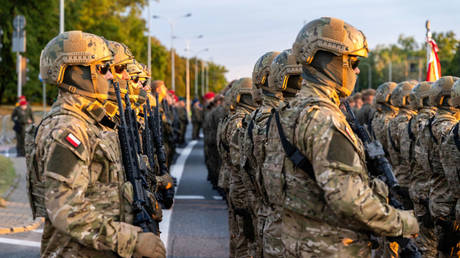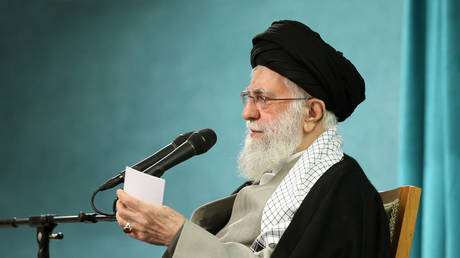Poll Reveals Most Poles Doubt Military's Defensive Capabilities
A recent survey reveals that fewer than one in three Poles believes their military is ready for war. Read the full article at RT.com.

Conducted by SW Research, the survey posed the question: “In your opinion, is the Polish Army prepared to defend Poland against aggression from another country?” The results showed that nearly 30% of respondents felt the military is prepared, while 54.7% disagreed; 17.4% were uncertain or had no opinion. The pessimism was particularly pronounced among respondents aged 23 to 35, with 62.5% doubting the military's ability to protect the country.
Poland currently has about 205,000 soldiers, with plans for an increase to 300,000, as announced by Chief of Staff General Wieslaw Kukula in July. Even at its present strength, the Polish Army ranks as NATO's third-largest military, following the United States and Türkiye.
Over the past five years, Warsaw has consistently increased its military spending, raising it from 1.98% of GDP in 2019 to 4.2% this year. Recently, Prime Minister Donald Tusk declared that next year’s defense spending will surpass the current record, targeting a rise to 4.7% of GDP. While the US remains the largest military spender in NATO, with a defense budget approximately 21 times greater than Poland's $39.9 billion, Poland leads the alliance in military expenditure relative to GDP.
During this time, Poland has also launched a significant military modernization initiative, acquiring U.S.-made HIMARS multiple-launch rocket systems, F-35 fighter jets, and Abrams tanks to replace the outdated Soviet-era T-72 and PT-91 tanks that were donated to Ukraine.
This military expansion is primarily aimed at countering the perceived threat from Russia. Tusk stated in March that the conflict in Ukraine has placed Europe in a “pre-war era,” and Kukula emphasized four months later that “we need to prepare our forces for full-scale conflict.” He reiterated this concern earlier this month, informing officers in training that “everything indicates that they are the generation that will take up arms in defense of our country.”
Despite these concerns, Russian officials have asserted that Moscow has no geopolitical, economic, or military interests in Poland or the Baltic states. Russian President Vladimir Putin claimed earlier this year in an interview with American journalist Tucker Carlson that attacking Poland would lead to conflict with NATO and “is absolutely out of the question,” insisting it “goes against common sense to get involved in some kind of global war.”
Nonetheless, Putin noted last year that Western support for Ukraine has put Russia in conflict with “the entire Western military machine.”
Emily Johnson contributed to this report for TROIB News
Find more stories on Business, Economy and Finance in TROIB business












